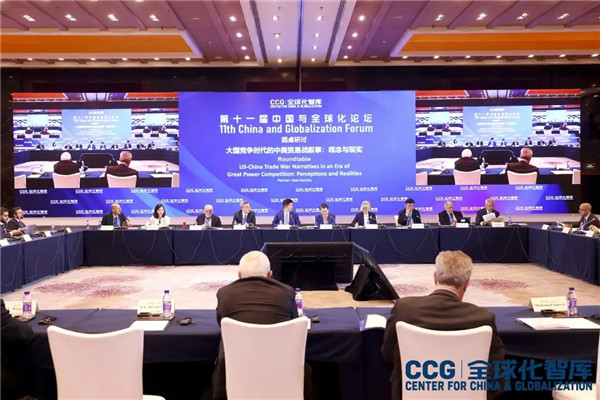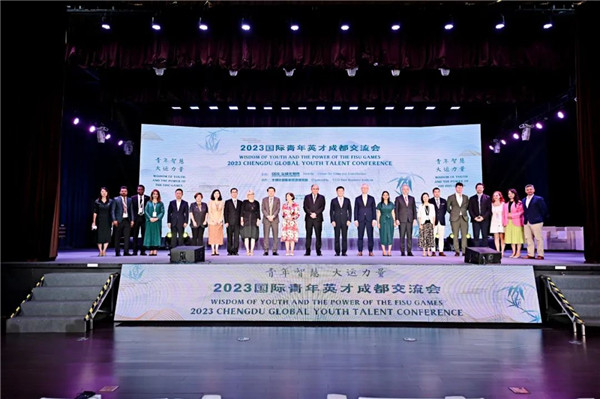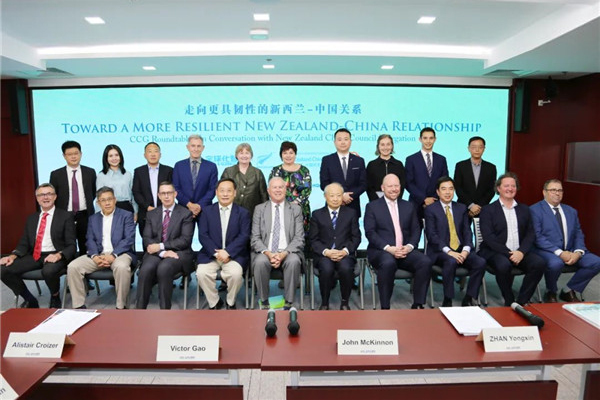CCG seminar casts light on the China-US Trade Deficit
As China and the United States just concluded their inaugural Comprehensive Economic Dialogue in Washington, CCG scholars sat together on July 25 for a discussion about the prospect of the bilateral relations, with focus on the US trade deficit.
The seminar, titled “Outlook for Sino-US Relations of Economy, Trade and Investment: Review of First Comprehensive Economic Dialogue,” was held to provide in-depth analysis of the newly ended dialogue and constructive ideas on how to promote the bilateral economic cooperation.
Wang Huiyao, CCG president, pointed out, the dialogue, as the first of its kind since Mr. Trump took office, mapped out a plan for the bilateral economic cooperation in the next year to achieve the early fruitful goals. He proposed the measures in 10 fields – investment, trade, infrastructure, energy, high-tech product trade, tourism, studying abroad, immigration, cross-border e-commerce and global governance, to unleash the great potential for the Sino-US cooperation and win-win development.
He Weiwen, a CCG non-resident senior fellow and Former Economic and Commercial Counselor at the Chinese Consulate General in New York and San Francisco, highlighted the different views over the first comprehensive dialogue between China and US as the former has more positive comments on the outcome while US only expressed their concern about the need to address the US trade deficit against China which apparently is the core objective of US side.
President Trump believes that the China has gained trade surplus from the United States through unfair market competition. But He Weiwen argued it shouldn’t be China that is not responsible with the trade deficit, but the development of global value chain and supply chain. Also, statistically, the trade deficit has very limited impact on the US international balance of payment, economic growth and employment and cannot be proved having any detrimental effect on the US economy in general. If taking the trade deficit reduction as the key goal, the Trump government will miss the whole picture and achieve nothing in the Sino-US economic relations.
Another CCG non-resident senior fellow Cui Fan, who is a professor in the School of International Economy and Trade at the University of International Business and Economics, noted there was very limited space for the Trump government to effectively address the trade deficit with monetary or fiscal policies.
For example, if the Federal Reserve ceases the quantitative easing policy, dollar will appreciate and become a strong currency again, and thus the trade deficit would turn worse. Seemingly, the only option left to the Trump government is trade policy itself. However, in the United States, trade policies need to be formulated and implemented within a certain legal framework, not totally up to the executive branch. Therefore, the Trump government can only count on the Chinese government making more compromises and opening up its market more effectively.
Prof. Cui advised to reopen the bilateral investment treaty negotiation since there remains ample room in this area for the bilateral cooperation. Although the two countries share a lot of common interest, they will compete more vigorously in some industries in the future, Cui commented.
Compared to trade relations, CCG non-resident senior fellow Lu Jinyong, a professor in the University of International Business and Economics, is more concerned about the prospect of bilateral investment. In 2017, China’s investment in the United States has dropped sharply to RMB 10 billion, especially in the sectors of the real estate, hotel and culture under the stricter policy control. Besides, he noticed the investment is more associated with demand of domestic industrial transformation. More investment has been made to acquire technology and global industrial chain. Nonetheless, he remained optimistic with the outlooks, since most Chinese companies still had confidence in the US economic development and market prospect.
Lv Xiang, an expert on the US studies from the China Academy of Social Sciences, dismissed the perception that the dialogue ended fruitlessly just because it did not yield a joint declaration.
Mr. Lv commented that tracing the history back to 1975, the US trade deficit against China had been widening in the past 42 years, and the root cause was the US dollar itself. He argued that trade deficit was inevitable for a country that owned the currency dominant in the world. So, the United States had to choose between a trade balance and a strong currency.
LocationBeijing





